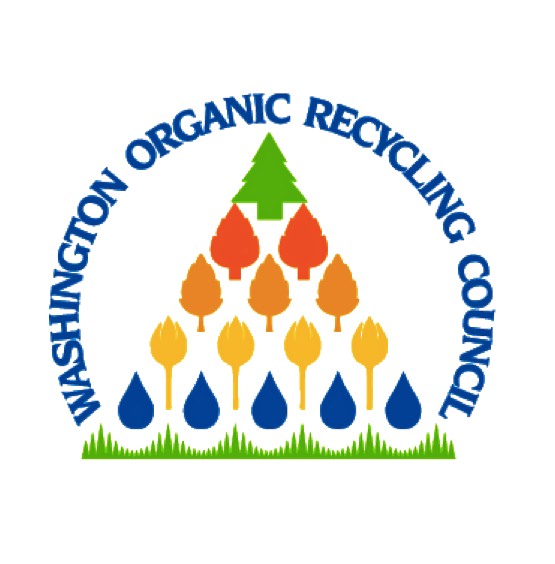USDA Announces Cooperative Agreements for Community Compost and Food Waste Reduction
/USDA Announces Cooperative Agreements for Community Compost and Food Waste Reduction
05/11/2020 04:00 PM EDT
WASHINGTON, May 11 –The U.S. Department of Agriculture (USDA) today announced the availability of $900,000 for local governments to host a Community Compost and Food Waste Reduction (CCFWR) pilot project for fiscal year (FY) 2020. The cooperative agreements will support projects that develop and test strategies for planning and implementing municipal compost plans and food waste reduction plans. The agreements are offered through USDA’s Office of Urban Agriculture and Innovative Production.
Produce Safety Alliance Grower Training
/Register online or for more information, please visit our website:
http://foodsafety.wsu.edu/training-programs/psagtandttt/
Produce Safety Alliance (PSA) was tasked with developing the standardized national produce safety training program to prepare fresh produce growers to meet the regulatory requirements in the U.S. Food and Drug Administration’s (FDA) Food Safety Modernization Act (FSMA) Produce Safety Rule.
What to Expect at the PSA Grower Training Course
The trainers will spend approximately seven hours of instruction time covering content contained in these seven modulesIntroduction to Produce Safety
Worker Health, Hygiene, and Training
Soil Amendments
Wildlife, Domesticated Animals, and Land Use
Agricultural Water (Part I: Production Water; Part II: Postharvest Water)
Postharvest Handling and Sanitation
How to Develop a Farm Food Safety Plan
In addition to learning about produce safety best practices, key parts of the FSMA Produce Safety Rule requirements are outlined within each module. There will be time for questions and discussion, so participants should come prepared to share their experiences and produce safety questions.
Benefits of Attending the Course
The course will provide a foundation of Good Agricultural Practices (GAPs) and co-management information, FSMA Produce Safety Rule requirements, and details on how to develop a farm food safety plan. Individuals who participate in this course are expected to gain a basic understanding of:
Microorganisms relevant to produce safety and where they may be found on the farm
How to identify microbial risks, practices that reduce risks, and how to begin implementing produce safety practices on the farm
Parts of a farm food safety plan and how to begin writing one
Requirements in the FSMA Produce Safety Rule and how to meet them.
After attending the entire course, participants will be eligible to receive a certificate from the Association of Food and Drug Officials (AFDO) that verifies they have completed the training course. To receive an AFDO certificate, a participant must be present for the entire training and submit the appropriate paperwork to their trainer at the end of the course.
Assessment of Exceptional Quality Biosolids Products for Urban Landscapes Webinar
/Please join us on Thursday, October 25 at 2PM ET for a webinar entitled Assessment of Exceptional Quality Biosolids Products for Urban Landscapes. The webinar presenters will share research-based information and data about the development and use of exceptional quality (EQ) biosolids for renovating disturbed urban soils and growing vegetables and highway roadside and high quality turfgrass. There is no charge for this webinar, but registration is required.
To learn more about the webinar and to register visit: https://learn.extension.org/events/3495
Getting Creative - How City Farmers Find Space to Do Their Jobs
/It’s not easy being a farmer. The days are long and many don’t make a living wage. Mental health issues are common amongst farmers, often due to mounting stress about money, weather, crop failure, and debt.
And fertile farmland is becoming scarcer. Open land is being threatened with development every day, and the loss of precious topsoil means that one day in the not-so-distant future, we may very well run out of healthy soil in which to grow food.
Despite all the challenges that land loss brings to farmers around the world, many individuals and organizations are finding new and innovative ways to grow food and sustainably feed their communities.
Urban farmers, for example, are reclaiming rooftops, vacant buildings, empty lots, yards, abandoned parks—and even the patches of grass between sidewalks and roads—in order to grow food. And they’re making a big impact.
Why Does It Matter? Click here to read more!
No Quick or Easy Answers for Using Raw Manure on Food Crops→
/BY COOKSON BEECHER | MAY 30, 2018
Watch children’s first reactions at a dairy farm and you’ll see their hands quickly going up to their faces and their fingers pinching their nostrils shut.
“What’s that awful smell,” they’ll ask the farmer.
For a farmer who hasn’t hosted groups of students before, the first expression crossing his or her face might be one of puzzlement, but then quickly replaced by a smile or chuckle of understanding.
“It’s manure,” the farmer will tell the children, who are still so overwhelmed by the smell that they don’t immediately notice the dairy calves put in special pens in front of them to see.
“Manure,” they ask. “What’s that?”
By the time the farmer explains what it is — cow poop, oh, yuck — and why it’s so good for the crops the farm grows, the kids’ interest has begun to flag. They’ve gone on to other questions such as how old are the calves and what do they eat. They might even be given bottles filled with milk so they can feed the calves.
And so it goes with raw manure, an unpleasant-smelling byproduct of livestock operations but one that has the sweet smell of success for farmers who depend on it to nourish their crops.







